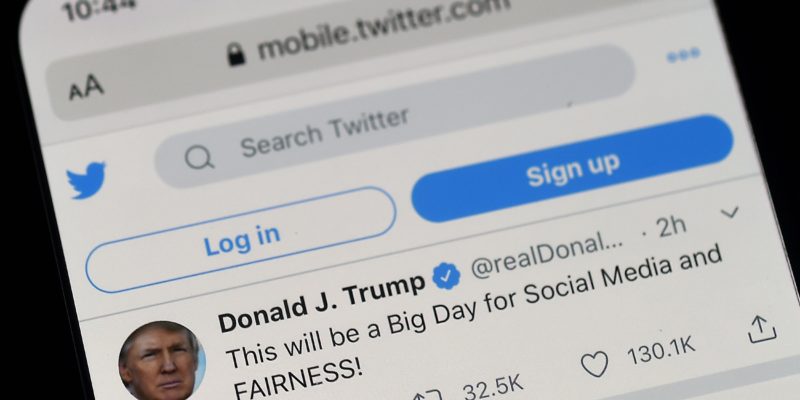The takeaways
- Trump’s order calls for the Federal Communications Commission to review the Communications Decency Act. Section 230 which gives social media platforms broad immunity to content created by their communities.
- Social media companies have “unchecked power to censor, restrict, edit, shape, hide, alter, virtually any form of communication between private citizens and large public audiences” said Trump
- In a tweet, Trump said “Republicans feel that social media platforms totally silence conservative voices. We will strongly regulate, or close them down, before we ever allow this to happen ”
What happened?
On Tuesday, President Trump’s tweeted stating that there was a high-risk mail-in ballots would be “substantially fraudulent”. As part of Twitter’s new civic-integrity policy, the post was tagged with marker usually reserved for unsubstantiated claims. Experts have said that mail-in ballots are rarely linked with fraud while also highlighting that five states currently vote entirely by mail-in ballots and every other state offers some form of mail-in voting option.
President Trump signed the executive order following Twitter’s decision to label some of his tweets as “potentially misleading”. The order paves a path for Americans to report censorship or bias of political views by the Federal Trade Commission. In a recent interview, Facebook CEO Mark Zuckerberg commented that “political speech is one of the most sensitive parts in a democracy, and people should be able to see what politicians say” and it was not the role of social media platforms to fact check politicians.
Does the proposal have a chance?
The president has regularly accused social media companies of being biased against conservative opinions. The order could expose Twitter, Facebook and other social media giants to an influx of lawsuits from individuals who feel their views have unfairly been censored in the past.
Legal experts from both conservative and liberal spheres have raised some doubts about the order. They say it risks invoking the First Amendment which does not apply to private companies. Facebook and Google said that such a proposal would penalize platforms that encourage free speech and that undermining Section 230 may hamper the digital economy.









